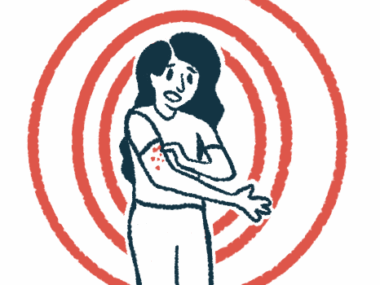Grant Supports Phase 3 Trial of FCX-007 for RDEB
Written by |

The U.S. Food and Drug Administration (FDA) has awarded Castle Creek Biosciences a research grant to support its Phase 3 clinical trial of FCX-007 (dabocemagene autoficel), an investigational gene therapy for treating wounds in patients with recessive dystrophic epidermolysis bullosa (RDEB).
The grant of $1.82 million, which comes from the agency’s Orphan Products Grants Program, is for four years. The focus of this program is on the development of therapeutics for patients with a rare disease like RDEB who have core unmet needs such as an effective treatment.
“We are honored to be awarded this highly competitive research grant for the ongoing clinical development of FCX-007, which has the potential to transform the lives of people suffering from dystrophic epidermolysis bullosa (DEB),” Mary Spellman, MD, said in a press release. Spellman is chief medical officer of Castle Creek and the grant’s principal investigator.
“We are committed to advancing our study of FCX-007 to develop a durable personalized therapy for the localized treatment of chronic wounds due to RDEB and will continue to work closely with the FDA as our program progresses,” she said.
FCX-007, also known as D-Fi, is a genetically modified version of a patient’s own dermal fibroblasts that carries a healthy copy of the COL7A1 gene.
Fibroblasts are cells in the skin that make connective tissue and are critical for wound-healing. The COL7A1 gene provides instructions for making a part of type VII collagen (COL7), a protein in connective tissue. Mutations in this gene cause RDEB.
The modified cells are then injected back into patients’ wounds, where a functioning version of COL7 can help with healing the skin.
To see how well FCX-007 works for treating wounds, researchers are conducting a Phase 3 clinical trial called DeFi-RDEB (NCT04213261) that will enroll up to 24 RDEB patients ages 2 and older.
Up to three pairs of persistent or recurring wounds will be identified per patient. The pairs will be selected randomly to either be treated with FCX-007 or remain untreated (as a control). The trial’s primary goal is complete wound closure of the first wound pair after 24 weeks (about six months).
The first patient was dosed late last year. The trial is underway at five U.S. sites: Stanford University in California; Children’s Hospital Colorado in Aurora; Dell Children’s Medical Group in Austin, Texas; Solutions Through Advanced Research in Jacksonville, Florida; and Mayo Clinic in Rochester, Minnesota. All are currently recruiting. More information is available here.
In an earlier Phase 1/2 clinical trial (NCT02810951) that included six patients with RDEB, eight of 10 (80%) wounds healed completely 12 weeks (about three months) after a first injection of FCX-007. None of the untreated wounds healed. FCX-007 was well-tolerated for up to 52 weeks (about one year).
The FDA gave FCX-007 orphan drug, rare pediatric disease, fast track, and regenerative medicine advanced therapy designations to speed its development into the clinic.






